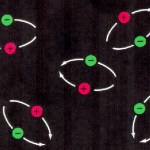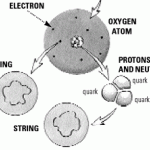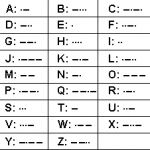quantum
Sure quantum computers can find a needle in an unstructured haystack quadratically faster than their classical brethren, but I didn't think the word "quantum" and "search" would appear in the press quite this soon: Ex-Googlers reinvent web search: Quantum porn (not safe for work! i.e. they show the quantum porn!) and Quantum porn engine foiled by strawberries and muffins: How the Cuil kids live. And yes, I "cuil"ed my own name, and no, this blog doesn't come up (nor any quantum porn.)
In attempt to keep my reading more current, I'm going to try to post the top rated arXiv papers on SciRate each week and hopefully add about the papers. Let's see how long I can keep it up (bets?)
0807.2668 (7 scites) "Mixing doubly stochastic quantum channels with the completely depolarizing channel" by John Watrous.
QP says: A large variety of open quantum system evolutions are describable using the superoperator formalism. A superoperator is a linear map from a space of linear operators to another space of linear operators. The ones we care most about in quantum computing are the…
A new entry in the best title ever competition appeared last week on the arXiv:
arXiv:0806.4874
Why devil plays dice?
Authors: Andrzej Dragan
Abstract: Principle of Relativity involving all, not only subluminal, inertial frames
leads to the disturbance of causal laws in a way known from the fundamental
postulates of Quantum Theory. We show how quantum indeterminacy based on
complex probability amplitudes with superposition principle emerges from
Special Relativity.
I bet the devil would play a mean game of liar's dice.
I'll admit it: I like reading George Soros' books. I mean, here's a guy whose made a godzillion dollars in the financial markets, has been behind political destabilizations/stabilizations worldwide, taken on a U.S. president (can you guess which one?), and yet, in spite of this, can write a book in which he talks his own brand of....philosophy and how it relates to life, the universe, and the current financial crisis. Whah?
As you might have guessed I just finished reading one such book: the rushed to market The New Paradigm for Financial Markets: The Credit Crash of 2008 and What It Means…
Hoisted from the comments, Robin asks:
So, with that in mind, here's a question. What do you think about teaching quantum mechanics as noncommutative probability theory? In other words, by starting with probability theory and alluding to probabilistic mechanics (e.g., distributions on phase space), and then introducing quantum theory as a generalization of probability.
This is how I think of quantum theory all the time now -- and it makes tremendous sense to me. I think it's how I want to teach it. And I'm curious what y'all think.
This is roughly how I like to introduce quantum theory,…
Over at the Optimizer's place, the Optimizer compares libertarians and those who believe in the many worlds interpretation of quantum theory. (Key Ron Paul apologists in three, two, one...) An amusing comparison. So if many worlders are the libertarians of interpretations of quantum theory, what political parties do the other interpretations of quantum theory fall under?
Copenhagen Interpretation: The standard interpretation before many-worlds became the standard. Key personality trait: worship of the founders of quantum theory. If Bohr said it, it must be true! Clearly these are…
There is a very techincal paper this morning by Martin Bojowald that asks the question, How Quantum Is The Big Bang? Let me break it down for you.
If you took a look at empty space and zoomed in on it, looking at spaces so small that they made a proton look like a basketball, you'd find that space wasn't so empty after all, but was filled with stuff like this:
What are these? They're little pairs of matter particles and anti-matter particles. They spontaneously get created, live for a brief fraction of a second, and then run into each other and disappear. That's what happens on very small…
When discussing ways that quantum computing may fail, a common idea is that it may turn out that the linearity of quantum theory fails. Since no one has seen any evidence of nonlinearity in quantum theory, and it is hard to hide this nonlinearity at small scales, it is usually reasoned that these nonlinearities would arise for large quantum systems. Which got me thinking about how to well we know that quantum theory is linear, which in turn got me thinking about something totally wacko.
For you see I'm of the school which notes that the linearity of quantum theory, if broken, almost always…
It was an unassuming blue-grey volume tucked away in the popular science section of the Siskiyou County Library. "Spacetime Physics" it announced proudly in gold letters across the front of the book. Published in 1965, the book looked as if it hadn't been touched in the decades since 1965. A quick opening of the book revealed diagrams of dogs floating beside rocket ships, infinite cubic lattices, and buses orbiting the Earth, all interspaced with a mathematical equations containing symbols the likes of which I'd never seen before. What was this strange book, and what, exactly, did those…
I just learned the very sad news that John A. Wheeler has passed away. Wheeler was one of my heroes and inspired me in many ways to be where I am today. I'm buried under a heap of work today, but will write more when I can come up for air. Below I've pasted a post from my old blog describing a result I first learned about by reading a Wheeler paper.
Note: This post originally appeared at my old blog site.
When I was an undergraduate at Caltech visiting Harvard for the summer I stumbled upon Volume 21 of the International Journal of Theoretical Physics (1982). What was special about this…
Over the past few months, I have been asked a number of questions about String Theory and the Universe, including from readers Benhead and Mastery Mistery. But now Jamie, whom I'm going to marry later this year, has been asking me about it, and so it's time to write something about the scientific topic of String Theory. (Send in your questions now, because I'll answer them all this week if there's enough interest.) Let's start with this pair of questions:
String theory has been around for over 20 years, and so far, there is not one shred of experimental or observational evidence in support of…
I'm heading home from the March meeting, after giving my talk this morning and then having a nice lunch with graduate (and one undergraduate) students at a "Meet the Experts" lunch. Yeah, somehow I slipped by the guards! Luckily a real expert was there, in the form of Paul Kwiat, so all was good and the students didn't learn anything to disastrous. "What I learned at the March meeting" below the fold.
Things I've learned at the APS March meeting:
There are a lot of physicists. Even if you don't count the particle and nuclear and gravitational physicist who have their own meeting. Oh,…
Over at Information Processing, the InfoProcessor talks about teaching Bell's theorem:
I find that the hardest thing about teaching this material in class is that, after half a year of training students' brains to think quantum mechanically, it is extremely difficult to get them to feel the weirdness of Bell's theorem and spooky action. It all seems quite normal to them in the context of the course -- they know how to calculate, and that's just how quantum mechanics works!
In the comments an anonymous commenter says that this is all backward, that Bell's theorem isn't strange, and that we…
On the arxiv Friday:
arXiv:0802.4248
Title: Coexistence of qubit effects
Authors: Peter Stano, Daniel Reitzner, Teiko Heinosaari
Comments: A paper with identical title is being published on the arXiv simultaneously by Paul Busch and Heinz-Jurgen Schmidt. These authors solve the same problem independently with a different method.
and
arXiv:0802.4167
Title: Coexistence of qubit effects
Authors: Paul Busch, Heinz-Jürgen Schmidt
Comments: A paper with identical title is being published on the arXiv simultaneously by Teiko Heinosaari, Daniel Reitzner and Peter Stano. These authors solve the same…
On President's day I attended the sSQUINT followup conference to SQUINT 2008. sSQUINT? Never heard of it? Neither had I. But when I learned that the "s" stood for "ski" (or maybe "snowboard") and that some of my fellow quantum informationers would be trekking to Wolf Creek Ski Area, well I had to submit a paper. Mine paper was about mogul formation as a self-organizing system. Another paper was on the ski bum as an outcast and iconoclast. Much to our delight the weather gods gave us some beautiful blue southern Colorado sunshine. For your delight, pictures below.
One quantum…
Quantum theory justifying gambling? So reads this column by one Reverend Doctor Mervin Stoddart from Florida in the Jamaica Observer.
Now I don't know whether quantum theory "justifies" gambling or not. But this paragraph
Life itself is a gamble and a game of trial and error in which all humans are forced to participate. In matters of life, all humans win some and lose some. Living is mostly sowing and reaping, and often just investing while losing or gaining. Playing the slot machine by investing 25 cents with a chance to win $25,000 is much better odds than buying ordinary shares or…
To follow up on the faster than light post here, let's ask another question:
If you can make a way of transferring information that doesn't involve matter, is that information limited by the speed of light?
First off, let's go over what information is, and then we'll talk about how transferring information without matter is even possible. Information is anything that's organized in a meaningful manner. Take a look at the following three sentences:
This sentence contains some information.
Tihs scnnteee cainntos smoe imnfriatoon.
Not a imfro nimsoe mnoisn ctrnsnet sihto.
Each of the three…
Super Mario World vs. the Many-Worlds Interpretation of Quantum Physics:
Those of you who know me outside of this blog will find that particular juxtaposition of physics and Nintendo very amusing.
"Jumper" is a new movie about a man (okay, Hayden Christensen, aka Anakin Skywalker) who can teleport himself anywhere just by thinking about it. Quantum teleportation is a procedure where quantum information can be transported using entanglement and a few bits of classical communication. The distance between these two is, *ahem*, rather large. The New York Times today has an article about an event at MIT (that other institute of technology) which brought together the director of Jumper, star Hayden Christensen, and MIT professors Ed Farhi and Max Tegmark.
The article is fun, with the…
Colorado State scores Keck money, D-Wave scores venture money, QICIQ 2008, Reversible computation tutorial, and a review of "Quantum Hoops."
The Keck Foundation has given some dinero to Colorado State for quantum computing research:
The primary goal of the research program is to demonstrate laser cooling and trapping of a single silicon atom. Then, on demand, researchers will ionize the atom and deliver it to the desired qubit location with nanometer accuracy, said Siu Au Lee, a professor of physics at CSU and principal investigator for the program.
D-Wave has closed a $17 million dollar…


